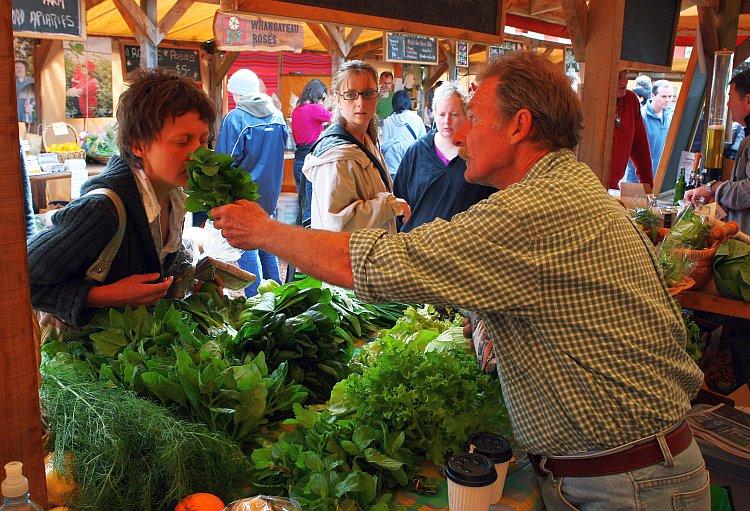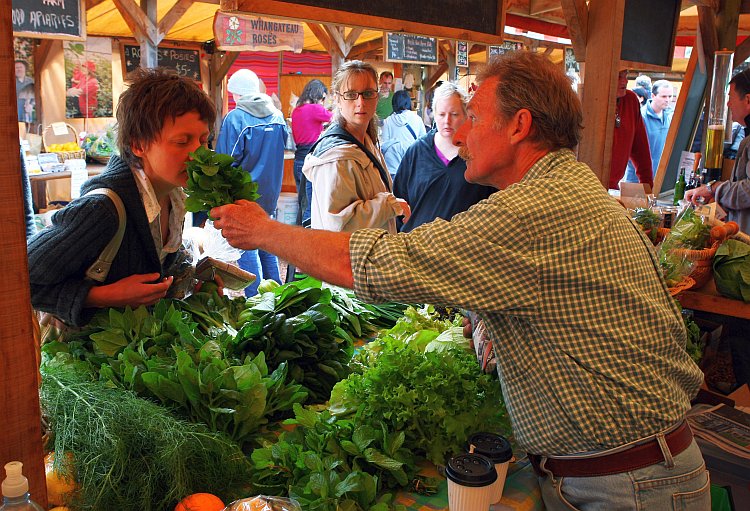HAMILTON, New Zealand—Small growers and food producers in New Zealand are concerned that if a draft food bill becomes law, it will create enough red tape to choke many out of business.
The Food Bill related to public health protection, seeks to amend laws that haven’t been updated in 30 years.
Some small operators believe that the bill is too complex and would be accompanied by exorbitant compliance costs.
An online petition that has so far garnered over 36,500 signatures, says the Food Bill will impact grass-roots enterprises including community gardens, food co-ops, heritage seed banks, and farmers markets.
But Food Safety Minister Kate Wilkinson says opponents are “whipping” up unnecessary fears that small traders will be caught up in costly red tape.
“That is simply not true. This bill won’t in any way affect people’s right to grow food and to then exchange, sell, or trade it,” said the minister in a press release.
“The current system is prescriptive and based on rules and inspections—which are often costly to food businesses. The new regime will create efficiencies for traders and improve food safety.”
What Small Producers Say
Rowena Robinson, a stallholder at the Tamahere Country Market in the city of Hamilton, said that data from the ministry’s own Institute of Environmental Science and Research (ESR) shows that the incidence of food poisoning in New Zealand had actually been declining.
In a submission to the Primary Production Select Committee she said that education had significantly reduced food poisoning, especially camphylobacter—the most common—usually caused by eating undercooked chicken.
“Onerous financial or other burdens will tend to drive them [stallholders] either away or to operate ‘under the counter,’” says Robinson.
A common sense approach is needed, she says. “The most effective thing is getting more and more people through those hygiene courses.”
The bill says that food operations will be regulated relative to the degree of risk posed with high-end businesses such as restaurants and bars having a stricter framework, and businesses such as bakeries, considered to pose a lower food safety risk with fewer requirements.
Food handler guidance information will only be provided for the lower risk end such as sausage sizzles fundraisers, bake sales, and small-scale farm-gate sellers.
Elizabeth (Biddy) Fraser-Davies from Cwmglyn Farmhouse Cheese in Eketahuna on the North Island, says the bill makes no allowance for very small operations unable to afford the enormous compliance costs geared to large dairy farms and commercial cheesemaking firms. She owns just three cows and put in a submission to the Food Bill asking for an exemption for small operations from expensive auditing and verification checks.
After appearing on “Country Calendar”—New Zealand’s most prominent television program focusing on rural life— Fraser-Davies said she was “pinged” by the Food Safety Authority for not complying with the proper regulations. The 69-year-old cheesemaker called the visit “intimidating.”
Her compliance costs then suddenly jumped from the $100 (US$79) per year license to $5,500 (US$ 4,365), to cover things like registration costs and raw milk tests.
“It seems to me that everything is designed to make it so difficult to comply that small operators like me will find it too hard and either get closed down … or just give up,” she said in her submission.
Kevin Hayes, a small mixed vegetable and livestock farmer from Nelson said the bottom line is cost.
“If you are only running a small business and you have only got a turnover of a few thousand [dollars] a year and your compliance costs are a few thousand a year, you don’t have a business.”
Hayes, however, expects he will be better off under the proposed regulations. “I will register with some agency. … They will send me a bunch of notes, and all I have got to do will probably sign a piece of paper to say I have read the notes and then I am done.”
Hayes sells his produce at the Nelson Farmers’ Market as well as First Choice supermarket, however, which he'll have to stop.
“Under the new regulations because I am not selling my produce face-to-face with my customer, it’s going via a third party. … I won’t be able to do that without becoming a registered food business so that part of my business will stop.
“Right now I am putting about 30 cucumbers … into Fresh Choice because that is basically the surplus that I have got over and above what I can sell myself. It is only worth $30 a week to me. Really not worth going through a lot of compliance costs for.”
Green Party: Small Producers Should Be Encouraged
Green Party spokesperson for agriculture Steffan Browning says that the powers given to food safety officers to inspect properties are “disturbing” and need to be changed.
In the bill, food safety officers are allowed to search private premises without a warrant, if necessary, and use any force that is reasonable with immunity from civil or criminal liability.
“The police don’t even have that sort of level of immunity,” said Browning.
Browning said he will see what his party can do in terms of amendments to the bill.
“What I would be aiming to do is to have the threshold set relative to the type of production.”
“Obviously dairy is quite different from growing carrots in terms of risk and food safety. ... We should be trying to encourage more small growers and producers of almost any form just for food self-reliance for the country,” he said.
The bill is due to be debated again in the next session of Parliament and still needs to go through its second and third readings.





